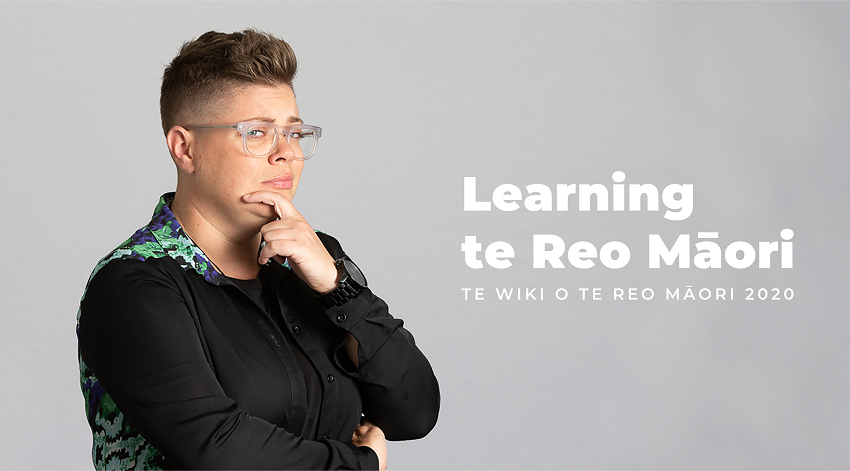
14 Sep Learning te Reo Māori
Our amazingly talented Design Consultant, Hannah Wyn has been kind enough to share her experience learning te Reo Māori over the past two years. Hannah is originally from Scotland and jumped at the opportunity to learn about te Reo Māori and Te Ao Māori as a way of immersing herself in kiwi culture.
Josh: Mōrena Hannah, how are you? Thanks for taking the time to have a chat with me. Could we start with a bit about you?
Hannah: Kia ora Josh! Kei te pai e hoa. Ko Mauao te maunga, ko Winchelsea Beach Ingarangi toku moana, ko Cathay Pacific toku waka, ko Pakeha toku iwi, ko Wynn toku whānau, ko Hannah toku ingoa.
Josh: Thanks Hannah, as you will know there is a pretty important week coming up for Aotearoa. It’s Te Wiki o te Reo Māori 2020 in just a few days. Hannah, since I’ve known you, you’ve always been very enthusiastic about this week. What is it about it that you enjoy so much?
Hannah: I think for me the best thing about Te Wiki o te Reo Māori is that you can speak as little or as much te Reo Māori as you want. Whether it be a simple tēnā koe, or your full pepeha, the whole purpose is to encourage the use of the language.
Josh: Most people know you as a creative designer with some of the best banter around, but you’re also quite good at te Reo Māori. How long have you been studying the language?
Hannah: Why thank you Josh, nice boost to the ego there. I’ve been learning te Reo Māori for two years now, through Te Wānanga o Aotearoa. Although Rona has slowed my journey down a little, I’m still practising.
Josh: You grew up overseas in the UK so you weren’t really immersed in kiwi culture at a young age yet you’re still drawn to te Reo and Māori culture. What is it that piqued your curiosity and what motivates you to keep learning?
Hannah: I think it’s always the way, when you don’t grow up somewhere, you really immerse yourself in the culture to learn and understand. The same way many Kiwi’s have travelled more of Scotland than I ever have! Te Reo Māori, and te ao Māori, are unlike anything I’ve ever encountered in the UK. And so my interest was instantly piqued. But also, for me, it’s a sign of respect to the country that’s welcomed me. To kōrero te Reo Māori shows a level of appreciation from me, to Aotearoa.
Josh: That’s a pretty awesome perspective to have! Would you say learning te Reo and about Māori culture has helped you professionally?
Hannah: Oh heck, that’s a hard one. Often I know more than I think I do. I have more confidence now to greet Māori clients for example. Or I know when to say “this is beyond my level of learning”, rather than trying to give it a crack and potentially offending someone. So long story short, yes, it has helped me professionally.
Josh: What about in your personal life?
Hannah: Same can be said here. I’ve been at events and introduced myself in te Reo Māori, been able to join in waiata, and generally have a better understanding of te ao Māori and te Reo Māori.
Josh: What’s your favourite word or saying?
Hannah: Two definitely stand out to me. In my first year of learning I can across the word ohorere which means to surprise. That particular lesson saw me hide behind the door, after kapu tī, and shout ohorere as my kaiako came in. Then in my second year I learnt the phrase heoi anō which, in short, means however or anyway. But, as with any language, it’s all about the horopaki (context) and hā (tone of voice). So delivering a sarcastic heoi anō when your kaiako asks you a pātai gets quite the laugh.
Josh: What do you or did you struggle with most while learning te Reo?
Hannah: I’ve thought about this quite a bit, and honestly, for me, the hardest thing about learning te Reo Māori was/is that I’ll never be Māori. That sounds super odd. But what I mean is that I’ll never fully understand or appreciate aspects of te ao Māori. Whilst I might understand ngā kupu, be able to deliver my pepeha, sing beautiful waiata, I cannot understand the deep feelings that I saw in my fellow students. That was/is the hardest part for me, but also the most humbling and emotional part of learning.
Josh: What barriers are there for someone looking to learn?
Hannah: Other than yourself, I can’t see any barriers to learning. You can do it at your own pace. You can do it online. You can read books. You can learn through an institute like Te Wānanga o Aotearoa. There are so many ways to learn. So if you have the time, make the commitment, and get stuck in you’ll be right.
Josh: If you could share a message with someone who might be reading now that has been thinking of taking up lessons in te Reo Māori, what would it be?
Hannah: Do it! Stop thinking about it and do it. It has been one of the most positive experiences in my life. Learning te Reo Māori is nurturing, connecting, exciting and grounding. You will not regret it.
Josh: Ka pai! Thanks so much for taking the time Hannah, hopefully this interview will inspire others to take up the challenge of learning te Reo Māori.